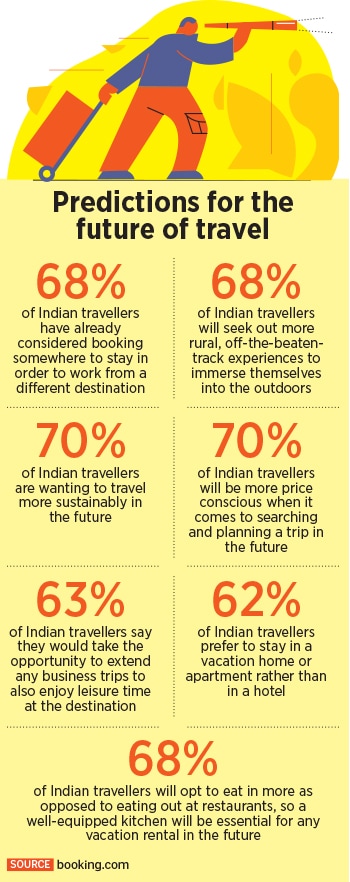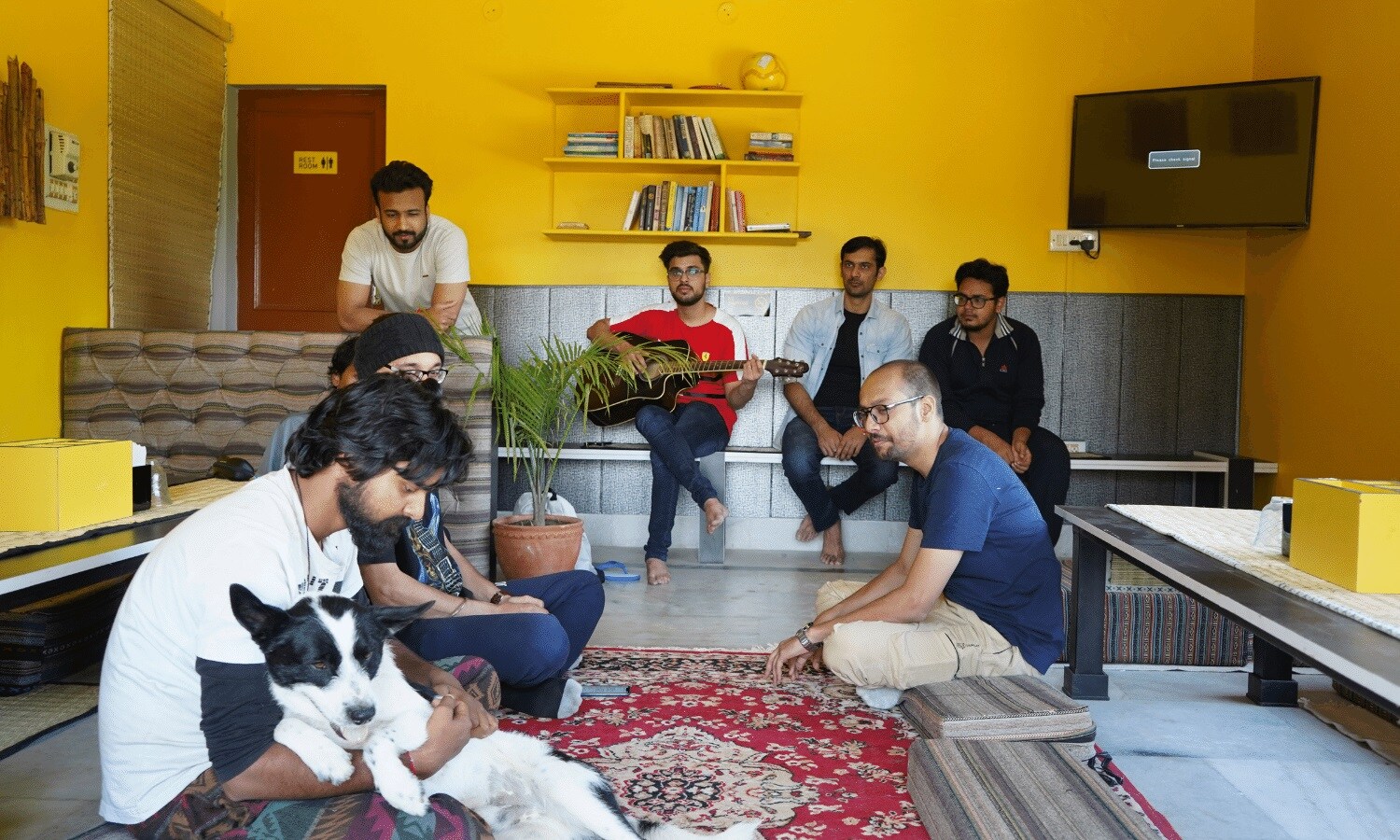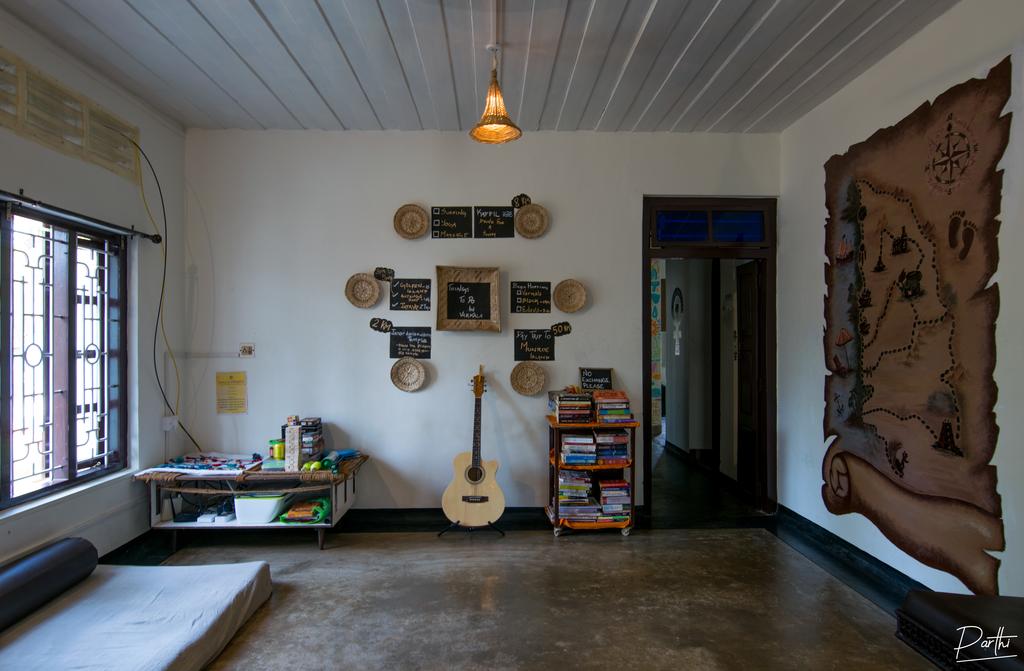The message above is on the website of Madpackers, a chain of hostels.
As the country gets used to life without lockdowns and no restrictions on travel, hostels—which attract a particular demographic such as backpackers and budget travellers—are slowly reopening their doors and innovating to bring business back on track.
Usually, they do most of their business from November to May. The travel and tourism industry, however, took a major hit due to the pandemic. The industry’s economic value at risk was estimated to be Rs15 lakh crore, according to the Federation of Associations in Indian Tourism & Hospitality (FAITH). It was also staring at a job loss of four crore, FAITH added.
“Ultimately, we end up becoming family,” says Yash Shetty, a 33-year-old software engineer, who prefers living in hostels over hotels. “Hostels are cheap, but the friendships they give are priceless. I can say I have at least one friend in every city, thanks to my encounters in hostels.”
It is this very thread—the vibe on which the trend of hostel stays thrives, of socialising, of sharing dorm rooms with other travellers and more—that Covid-19 has jeopardised.
“Hostels have traditionally (pre-Covid-19) been one of the fastest-growing segments for us in India. We listed our first hostel in India in 2010 and have witnessed this segment growing consistently since then,” says Ritu Mehrotra, regional manager, South Asia, at Booking.com, a digital travel company. Hostels have been among the top five most booked accommodation types for Indian travellers in February 2021.
“The growth of this segment, however, is nowhere close to pre-Covid-19 levels… but we expect a positive trend in the hostels segment, as travellers are increasingly looking for alternative accommodations,” adds Mehrotra.
To reach pre-Covid business levels, hostels are rethinking their strategies and revising their marketing plans. From offering discount cards and flexible booking and cancellation policies to creating workspaces for workations, hostels are continuously innovating to woo travellers.
And both hostel owners and travellers seem content with the response so far.
“When I travel in India and stay in hostels, it has been my observation that it is not easy to work in hostels as a large number of people are on a holiday, not to work remotely,” says Shubham Singhi, a travel blogger and photographer heading the travel blog, World In My BackPack. “However, this time, my experience was surprisingly good. A lot of people in the hostels that I stayed in were working remotely… the environment was conducive to getting work done. After a day’s work, the atmosphere would change completely with people getting into vacation mode. Overall, the setting provided the best of both the worlds for me as I could concentrate on my work and also get a holiday feel.”
![hostel_infographic hostel_infographic]()
According to a survey by Booking.com that predicts the future of travel, 68 percent of Indian travellers have considered booking a place somewhere in order to work from a different destination. And travel platforms are prioritising showcasing home-office facilities and Wi-Fi speeds to attract customers. The survey further shows that 70 percent of Indian travellers will be more price conscious when it comes to searching and planning a trip in the future.
Hostels, too, are going the extra mile to ensure travellers get what they want in these trying times. Take the Madpackers hostel for instance. The chain of hostels spread across five cities is offering packages for long stays, workations and discounts on travel cards—redeemable against stay, food and beverage and select experiences with Madpackers—without any time limit.
“While the coronavirus has brought all travel to a halt, we’re hopeful that on the other side, we will see the rise of a more conscious, sustainable and responsible way of travel. One that will benefit both the traveller and the travelled to,” says Mayank Sahai, CEO and co-founder, Madpackers. “We have affordable stay options, no security deposits, dedicated working areas, high-speed Wi-Fi and everything else you might need to ensure a safe, comfortable, productive and social lifestyle.”
The Hosteller—launched in 2015 and present across 12 cities—operated in eight locations in India in FY20 and made an annual sale of Rs6 crore with 70 percent occupancy.
However, the pandemic brought a halt to the overall business, says Pranav Dangi, CEO, The Hosteller. “The management had to take drastic steps to minimise expenses, retain employees and simultaneously devise new strategies to bring in business via alternative channels,” he explains.
Since it reopened on August 15, The Hosteller introduced new products like workations, made booking and cancellation policies flexible to give travellers the option to modify their travel dates should there be any change in the government’s policies in light of the pandemic. “Since November, we have seen a huge boost in travel sentiments due to the holiday season, work-from-home regime adopted by companies and regular long weekends. This enabled us to clock 80 percent-plus occupancy at most of our hostels,” says Dangi.
He concedes that the regular buzz was initially missing when people started trickling in because of criteria like 50 percent occupancy in dormitories, rearrangement of dining spaces as per social distancing norms and community kitchens that had to be shut down. “So, the vibe was a bit slower and more relaxed initially. Now, distanced events and some local tours are back which will hopefully allow travellers to get the quintessential hostel vibe,” adds Dangi.
![the hosteller the hosteller]()
Gatherings at The Hosteller in pre-Covid-19 times.
Like The Hosteller, Goa-based hostel chain Piggy Ventures—with offerings such as surf workshops, yoga retreats, pub crawls and barbeque nights—was on track to earn close to Rs1 crore in revenue in its first year since its May 2019 launch. But it couldn’t.
![hall hall]()
The hall at Piggy Ventures
“In the initial months of the pandemic, it was total chaos. We had to shut down both hostels immediately. Our revenues dropped to zero all of a sudden,” says Ryan Prazeres, founder and CEO of Piggy Ventures. To make up for the losses and keep customers’ fears at bay, Piggy Ventures has since shut down community kitchens while common rooms have been rearranged to maintain physical distancing. It has, therefore, been harder than ever to maintain that same hostel vibe. “But we have trained our team members to try and encourage Covid-safe activities,” says Prazeres. Since reopening, on noticing long-stay customers and people opting for workations, Piggy Ventures offered a dedicated line of high-speed broadband connections. In addition, it also designed packages for them that included yoga sessions, bonfires or a scuba diving course at additional cost. “We have even started developing our own tech to allow guests a contactless experience at the properties. We should roll that out shortly,” adds Prazeres.
Phani Verma, a 26-year-old HR professional, who opted for a workation at Piggy, says the experience has been nothing but fun. “Feeling stuck [at home] was slowly affecting my health and even my productivity. Freeing up my headspace has been one of the major benefits of this workation. I got to meet like-minded people, work, and chill and explore Goa at the same time,” she says.
At Piggy Ventures, guests are asked to do the necessary tests, all rooms and dorms are sanitised daily, common rooms are sanitised multiple times a day while wearing of masks is compulsory in common spaces. “We encourage our guests to be as social as possible while maintaining physical distancing. Being a responsible traveller is most important and we put signs everywhere to remind guests of that. All our activities now also take into account social distancing. We are now doing occupancies higher than pre-Covid-19 levels… we are confident that hostels will continue to see great occupancies and growth since travellers today want more than just a bed, and that’s where we focus our efforts on,” explains Prazeres.
“We are on track to do Rs1.5 crore in annual revenue. And with our current plan to sign new properties in the North, we are predicted to touch Rs2 crore in annual revenue which will be double of our pre-Covid revenue target,” he adds.
Zostel, a chain of hostels that was established in 2013 with a presence in 55 cities, was growing almost 100 percent year-on-year. But from March to September 2020, it had zero revenue, says Dharamveer Singh Chouhan, co-founder and CEO of Zostel. “From September onwards, we started seeing some green shoots. It would be safe to say that since November, we started to reach our pre-pandemic levels.”
To help it get there, the management cashed in on the work-from-home opportunity to offer long stays and set up facilities such as high-speed internet, rearranged multiple indoor and outdoor spaces in every hostel to ensure privacy while working, followed social distancing dorms—50 percent occupancy at an additional cost—and even gave the option to self-cook. With these measures in place, along with basic sanitisation, temperature checks and other Covid-19-related protocols, Chouhan says they started experiencing a lot more traffic. The fact that most Zostels are in remote places, away from the main city and crowd, also helped. “For the guests who were coming back, it wasn’t about exploring new places as much as it was about just being away from their home cities. Until January, 80 percent of our guests were staying for a longer term. I think now it’s becoming an even split between those who are opting for longer-term workations and those who are travelling for leisure to make up for all the travel that was lost in 2020,” says Chouhan.
At this extraordinary moment in time, says Mehrotra of Booking.com, innovation within the travel industry will accelerate faster than ever to respond to marked shifts in travel expectations and behaviours. Perhaps, this is exactly what the hostels are doing—innovating, and probably, succeeding too.



